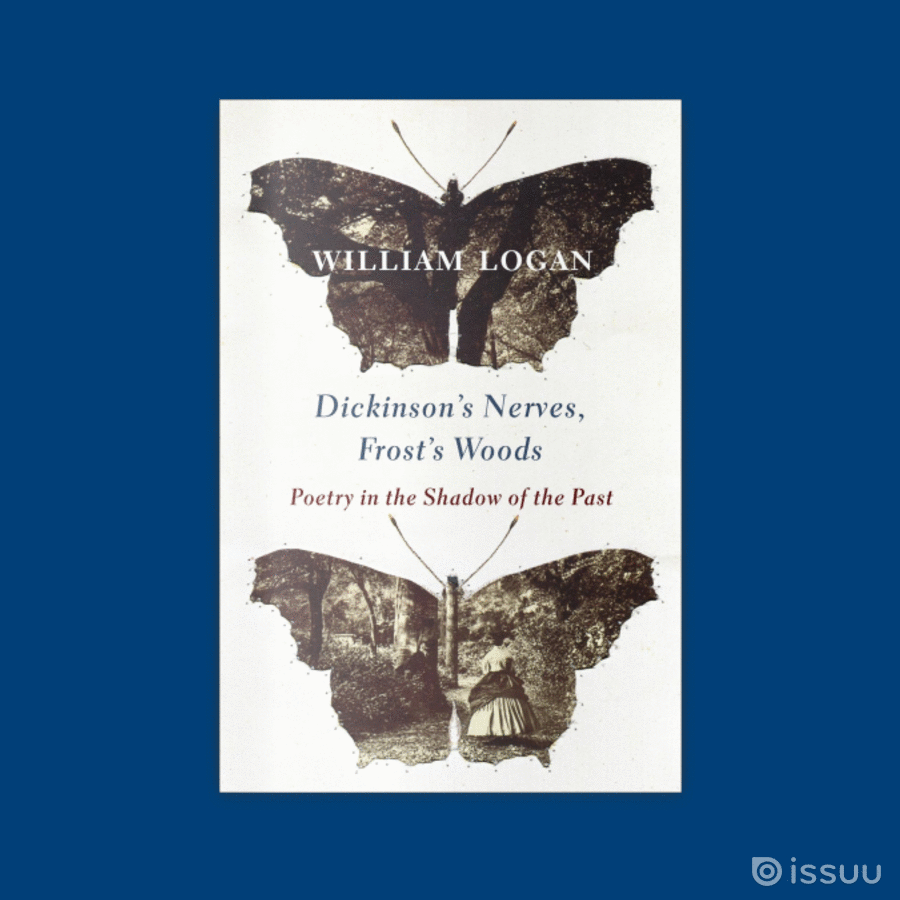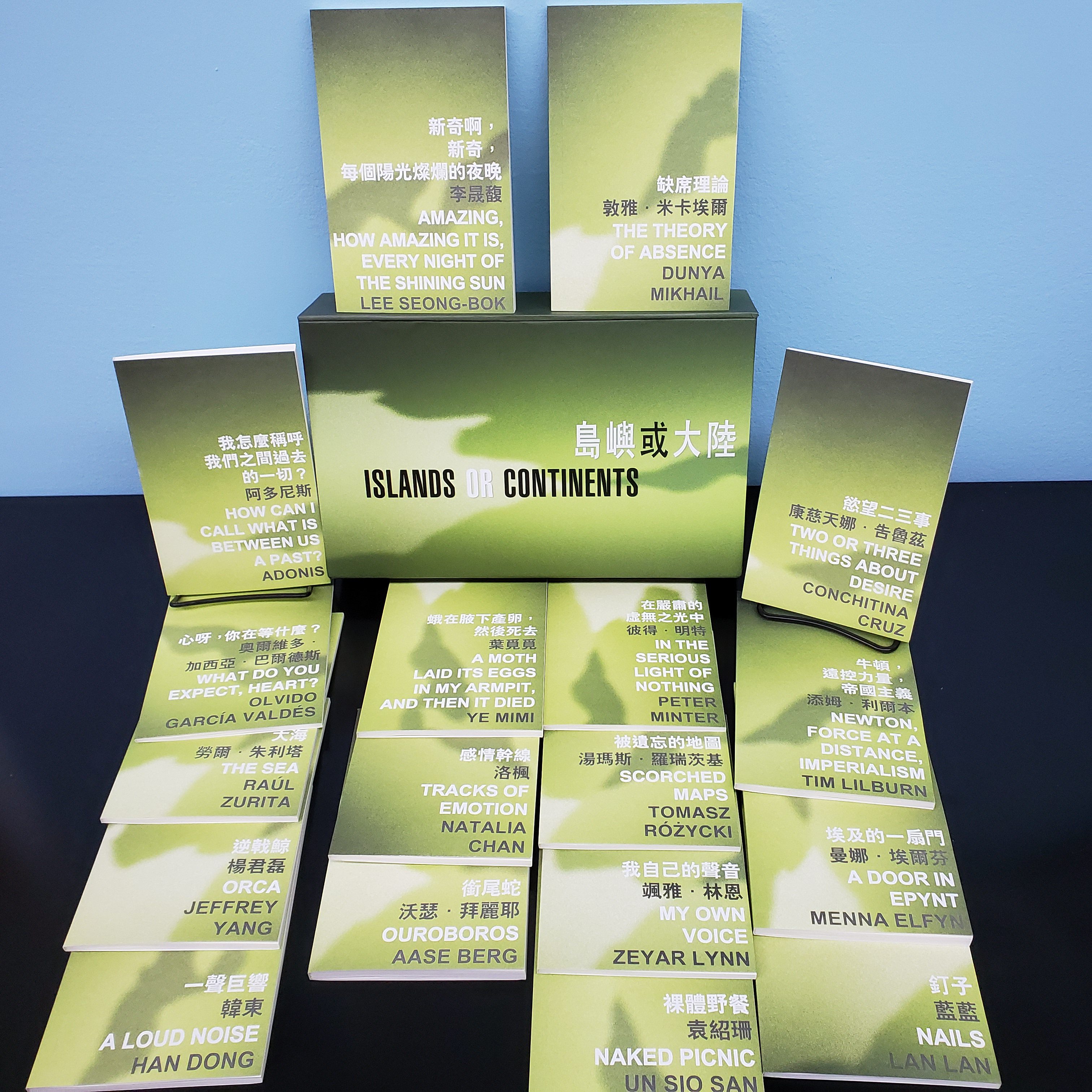William Logan Poetry Criticism Quiz
Today is the final day of our week-long focus on poetry (today is also the final day of our National Poetry Month book giveaway; be sure to enter by 1 PM today for a chance to win six excellent volumes of poetry!), and we thought we would finish our poetry week with a fun quiz! Columbia University Press has had the privilege of publishing two volumes of critical essays by the poet and critic William Logan, Our Savage Age: Poetry and the Civil Tongue and The Undiscovered Country: Poetry in the Age of Tin. As a critic, Logan is perhaps best known for his sharp wit and his willingness to express dissatisfaction with a poet or a volume of poetry.
We’ve collected twelve of Logan’s best one-liners (or, more accurately, several-liners) and removed the names of the poets, poems, and volumes of poetry mentioned there-in. How many names of the poets Logan discusses can you guess? Email your answers to lf2413@columbia.edu by 1 PM, Tuesday, April 16. We’ll grade the responses, and the entry with the most correct answers will win a copy of William Logan’s Our Savage Art and The Undiscovered Country! The contest is now closed.
Update: Check here for the answers to the quiz!
Number 1:
“_____ lives on a farm, where she owns the franchise to a certain sort of farm poem. You can’t walk around her barnyard without stepping on one. _____, her twelfth book of poems, is earnest, sensible, maternal, often composed in a barnyard prose that wishes it were poetry…. [H]er poems are held together with baling wire, and her idea of a juicy idea is a meditation on home canning.”
Number 2:
“No doubt she would have become a different poet from the young woman who died at thirty with her head in a gas oven…. Poets are rarely given – most are never given – months of such intensity; but, if they suffer them, they cannot sustain them.”
Number 3:
“Twice last fall I tried to read _____’s _____, but its Erector Set construction and sweetly harebrained narrative kept putting me off…. _____ is a classics scholar with a taste for show-off learning (I happen to like show-off learning myself).”
Number 4:
“_____ is that rarity, a poet with popular appeal, easy to read as a billboard, genial as a Sunday golfer, and not so awful you want to cut your throat after reading him.”
Number 5:
“Even now, almost half a century after his death, when people reach for a poet plainspoken and plain dealing, who says what he means and says it rare, they reach for _____ – yet _____ was never as simple as he seemed. His poems are full of anger, betrayal, wrenched pride, foolishness, all the frailties of men; and he brooded upon weakness like a philosopher.”
Number 6:
“_____ dreamed of being a poet a lot more than he sat at his desk and wrote poems; he was forever complaining in letters that he had no time to write, though he found plenty of time to drink…. It was hard work avoiding real work, but _____ became an expert at writing cadging letters to his divorced parents and playing one against the other.”
Number 7:
“_____ is a prairie sentimentalist who writes poems in an American vernacular so corn-fed you could raise hogs on it. _____ never met a word he didn’t like, unless it was a long one, or one derived of Latin, or Greek, or French….”
Number 8:
“_____’s taste for Horatian state-of-the-nation poems too easily become moral hectoring…. _____ can’t devour a piece of Parma ham without letting the reader know that somewhere a city is getting sacked – food all too often makes him think of mass murder.”
Number 9:
“_____ has written a pinch-mouthed, grave-digger’s poetry so rich and allusive his books are normally greeted by gouts of praise from critics and the bewilderment of readers who might have been happier with a tract on the mating rituals of the earwig. _____ has made brutally plain that the common reader is of no interest to him. Indeed, he feels that sinking to the common ground betrays the high purpose of verse.”
Number 10:
“If you want to know what its like for _____ to menstruate, or squeeze her oil-filled pores, or discover her naked father shitting, _____ will tell you. If you want to know what her sex life is like (it’s wonderful, trust her!), she’ll tell you, and tell you in prurient, anatomical detail the Greek philosophers would have killed for – she’s the empirical queen of lovemaking, of every secret session of the body.”
Number 11:
“_____’s poems are so professional, you feel he dresses in a suit and tie before sitting down at his desk. Even when he goes a bit wild, as he does at times in _____, merrily discarding verbs, yodeling when he feels like it (‘Mallah walla tella bella. Trah mah trah-la, la-la-la’), or simply making things up, his rashness is the soul of caution – he has all the reckless daring of Walter Mitty.”
Number 12:
“_____’s poems are loveliest on the mildness of their ambitions. She looks at a snail (she may be more interested in snails than even snails are), or a fish, or an insect, or perhaps just stares out a window – at times you wish she’d get out a little more. Not much happens, and not much is meant to happen except a woman coming to terms with herself.”
Remember, email your answers to lf2413@columbia.edu by 1 PM, Tuesday, April 16 for a chance to win FREE copies of Our Savage Art and The Undiscovered Country!




1 Response